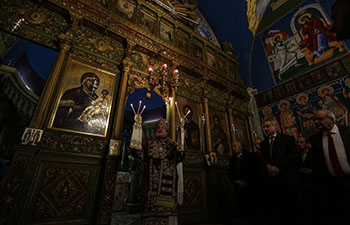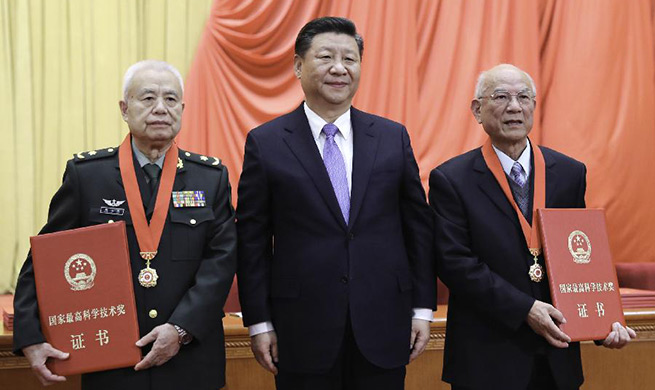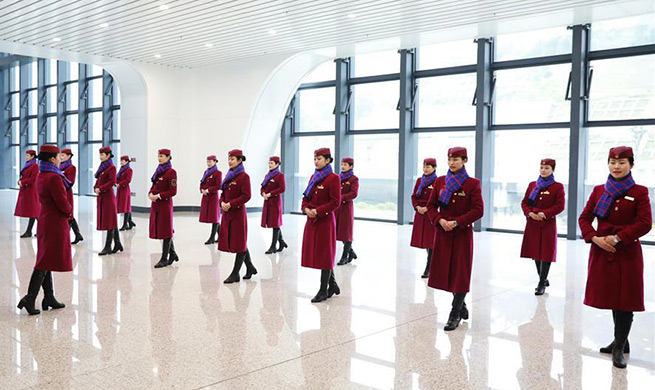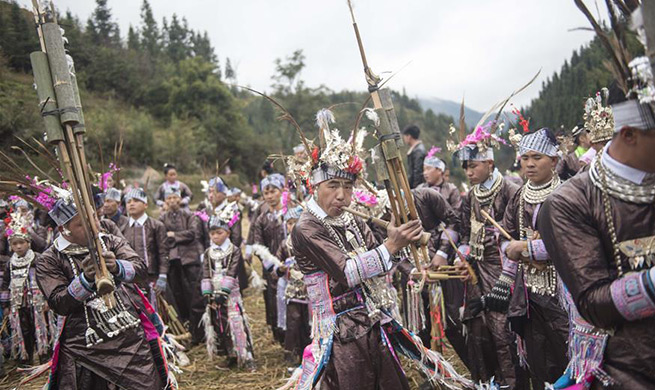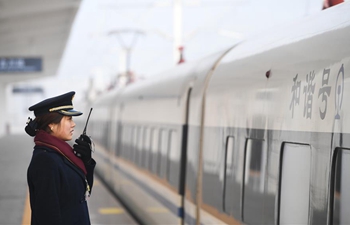BEIJING, Jan. 7 (Xinhua) -- U.S. Secretary of State Mike Pompeo and National Security Adviser John Bolton have kick-started their New Year trips seperately to 10 Middle East countries, viewed by experts as the latest move to counterbalance Iran and reassure Washington's regional allies as they grow increasingly frustrated over a capricious U.S. Middle East policy.
The trips came on the heels of the United States' surprise plan to withdraw troops from Syria. Though the Trump administration later denied it has a timetable for the exit, the mixed messages have stoked a new wave of doubts among its regional partners over the U.S. regional commitment.
Bolton told press after meeting with Israeli Prime Minister Benjamin Netanyahu on Sunday that the pullout would be done in a way that ensures the defeat of the Islamic State (IS) militant group so that it will not revive itself.
He added that the U.S. Kurdish allies must be protected, and the defense of Israel and "our other friends" in the region should be assured.
Tarek Fahmy, a professor of political science at the American University in Cairo, said Trump announced the pullout only to make good on his promise during his presidential campaign, while details are yet to be discussed with the U.S.'s allies.
One of the priorities of Pompeo's and Bolton's trips is to work on those details. For example, Fahmy said, about 2,000 U.S. troops stationed in Syria could be deployed to the military base in Iraq, in other words to redeploy instead of withdraw.
However, in the face of the Syrian crisis, regional powers like Israel, Saudi Arabia and Turkey all have their own priorities. Turkey, unlike the other two, sees less need in using the Syrian crisis to rival Iran.
Also, Turkey diverges from the United States on the issue of Kurdish militia, and remains silent to Bolton's claim to protect the Kurdish forces in Syria.
The United States will not actually leave the region even if the pullout take place, said Stephen Walt, a professor at Harvard University. He added that America is providing military aid and equipment for its allies, with more than 40,000 troops deployed to the region.
In Egypt, Pompeo is going to boast in a speech America's "commitment to peace, prosperity, stability and security in the Middle East," according to the U.S. state department.
The trips may somehow unnerve the U.S.'s allies, yet the Trump administration's Middle East policy would continue to sow seeds of chaos in the most troubled part of the world over the long run. The records of the past two years have attested to that.
Despite boisterous global oppositions, Washington has for the last two years moved its Israeli embassy to Jerusalem, pulled out of the Iranian nuclear deal, brought sanctions against Tehran back to life, and air-bombed a war-torn Syria.
Doug Bandow, who served as a special assistant to former U.S. President Ronald Reagan, described Washington's track record in the region as "disastrous" in his article published by The National Interest magazine in 2016.
Washington is pitting the Arabian Gulf countries against Iran, its archenemy in the Middle East, as Pompeo's eight-nation tour, including Jordan, Egypt, Bahrain, the United Arab Emirates, Qatar, Saudi Arabia, Oman and Kuwait, aims at building an "Arab version" of NATO to counterbalance Iran.
Yezid Sayigh, a senior researcher at the Carnegie Endowment for International Peace, said a tight alliance of Arab countries is unlikely without a common ground in defense. Moreover, the U.S.'s unprincipled siding with Israel would undermine the alliance.
The idea could only bring conflict and strife to the region, said Andrew Miller, a researcher at the Carnegie Endowment for International Peace.







